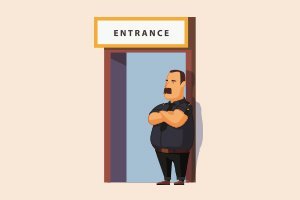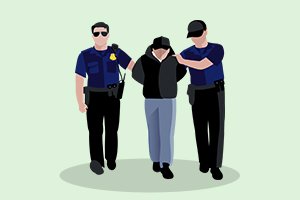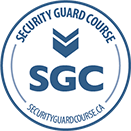Q. Is this a certification course in the Use of Force and basic Handcuffing?
A. Yes. The resume and credentials of the Subject Matter Expert who wrote and narrates this course has the requisite credentials to issue certification using online only delivery methodologies. The company is also a verified Vendor of Record for training Provincial Officers in Ontario.
Q. How can Use of Force and Handcuffing be taught purely online?
A. The number of kinesthetic (hands on only) learners is very small. Many are labelled as ADD or ADHD in fact. While it is true that some people prefer to learn using “hands on with real time feedback,” the fact is that most people also learn by reading, watching, mirroring, interacting with others and self practice. The bulk of people have blended learning styles which can be accomplished now, online.
Q. What about real time instructor feedback and subjective evaluations?
A. Feedback can be obtained online using video chats if required. There is also an option for an “in house” instructor certification in this program.
Subjective evaluations by certified instructors only carry so much weight. Old training methodologies dictated that a person had to demonstrate, competence and confidence in order to meet a set standard to pass. The resulting problem was that the student may meet this standard in class but then leave the classroom and never practice afterwards causing this skill set to deteriorate rapidly.
Unless the learner practices and/or refreshes the skill set with someone more qualified, they likely would continue to do it wrong and there is no way of knowing until there is a problem later. Once the learner leaves the classroom and the instructor who “certified them,” there is no way to know if they will continue to practice or even retain what they learned.
Instructors cannot be held liable for a learner not practicing a perishable skill set or how they apply that skill set once they leave the instructor’s presence. The onus then shifts to the person and their supervisors to prove how the skills were maintained after initial certification. (If you don’t use it….you will lose it.)
Q. Isn’t there a Provincial standard for use of force and handcuffing for security guards?
A. In Ontario, and most other Provinces and Territories, no. Only B.C. has a mandatory handcuffing certification standard. All the others do not. Police and related professions sometimes have standards built into their legislation, but it does not apply to civilian security guards.
Q. Given that there are two different types of handcuffing methods, active and passive, plus a large number of other defensive tactics skills, what specifically is taught in this course and why?
A. All the related legal academics, articulation of incidents, judgment and decision making are taught as a baseline. No course is complete without the legal reasons when, where and why force can or should be used by persons who are not police officers.
Basic disengagement skills are demonstrated step by step as a prelude to control techniques, but NO hard empty hand skills are taught in this course. Our company has not taught pressure point techniques or hard empty hand skills for 25 years. The reason being is that we believe that giving people pain is NOT a valid paradigm for controlling violent behaviour and it offers NO control whatsoever.
In some cases, using pain compliance techniques is completely ineffective and only serves to escalate the problem at hand. This aside, given the social media video that is likely to appear, your punching, kicking etc. will not help convince people of your position especially given that you are not the police.
Handcuffing and Search are two topics that are covered in depth. Step by step instruction is done using pictures, video of a live class being taught and support materials provided.








